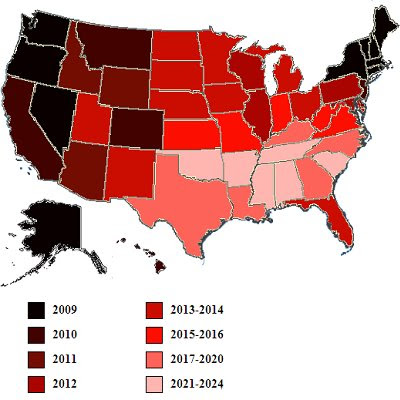Next week I promise more mundane subjects. Be sure to read my review of Dr. Solomon's presentation at
Bessemer Science and Nature.
This is by Rev. Jonathan Loppnow and Rev. Paul C. Evans of Topeka. I have permission to reprint it. I did place some emphasis here and there.
Update: This post was pretty much a response to comments on
this post about Perry Stone.Genesis 19 The Story of SodomGenesis 19 describes how two angels visited Sodom and were welcomed into Lot's house. The men of the city gathered around the house and demanded that Lot send the visitors to the mob so that they might know the angels.
[The Hebrew verb yada (to know) is ambiguous. It appears 943 times in the Hebrew Scriptures (Old Testament). In only about a dozen of these cases does it refers to sexual activity; it is not clear whether the mob wanted to rape the angels or to meet with them, and perhaps attack them physically. From the context, it is obvious that their mood was not friendly].
Lot refused, but offered his two virgin daughters to be
heterosexually raped if that would appease the mob. The offer was declined. God decided to destroy the city because of the wickedness of its inhabitants. The angels urged Lot and his family to flee and to not look back.
Unfortunately, Lot's wife looked the wrong way, so God killed her because of her curiosity.
God was apparently not critical of Lot for offering his two daughters to be raped. However, God was angry at the other inhabitants of the town. He destroyed Sodom with fire and brimstone (sulfur). He presumably killed all of the men in the mob, their wives and other adults, as well as children, infants, newborns, etc. It is unclear from these few verses whether God demolished the city because the citizens:
1)were uncharitable and abusive to strangers
2)wanted to rape people
3)engaged in homosexual acts.
The Church has traditionally accepted the third explanation. In fact, the term sodomy which means anal intercourse is derived from the name of the city, Sodom.
But the first explanation is clearly the correct one.
As recorded in Matthew 10:14-15 and Luke 10:7-16,
Jesus implied that the sin of the people of Sodom was to be inhospitable to strangers. In Ezekeiel 16:48-50,
God states clearly that he destroyed Sodom's sins because of their pride, their excess of food while the poor and needy suffered, and worshiped many idols; sexual activity is not even mentioned.
Jude disagreed with God; he wrote that Sodom's sins were sexual in nature. Various biblical translations describe the sin as fornication, going after strange flesh, sexual immorality, perverted sensuality, homosexuality, lust of every kind, immoral acts and unnatural lust; you can take your pick.
We are faced with the inescapable and rather amusing conclusion that the condemned activities in Sodom had nothing to do with sodomy.
Source:
OCRT: Bible and HomosexualityThe story of Sodom and Gomorrah actually condemns inhospitality and idolatry, not homosexuality.
Read the Scriptural cross-references: Deuteronomy 29:23, Isaiah 1:9, Jeremiah 23:14, Lamentations 4:6, Ezekiel 16:49-50, Amos 4:11, Zephaniah 2:9, Matthew 10:15 / Luke 10:12, Luke 17:29, Romans 9:29, Jude v.7, Revelation 11:8
NOWHERE in the Scriptures does it say that the sin of Sodom and Gomorrah was homosexual sex. Even if the specific point of the story was concerning a sexual matter, rather than hospitality, the issue is rape not homosexuality. Jesus claimed the issue was simply one of showing hospitality to strangers (Luke 10:12).
How ironic that those who discriminate against homosexuals seem to be the true practitioners of the sin of Sodom.
Source:
Same Gender Sexual Behavior and the ScripturesThis paper is provided as a service of the Metropolitan Community Church of Topeka, authors Rev. Jonathan Loppnow and Rev. Paul C. Evans. It may be reproduced freely as long as the entire text is reproduced and unaltered, all attributions are left intact and it is not sold for profit or included in a for-profit publication. Copyright © Jan. 7, 1998
Copyright © by the author All Rights Reserved



































 Here in Bessemer we have the abandoned rail line that spans Carolina Avenue and turns parallel to First Avenue. It's wide enough for a bike/walking trail and then some.
Here in Bessemer we have the abandoned rail line that spans Carolina Avenue and turns parallel to First Avenue. It's wide enough for a bike/walking trail and then some.



